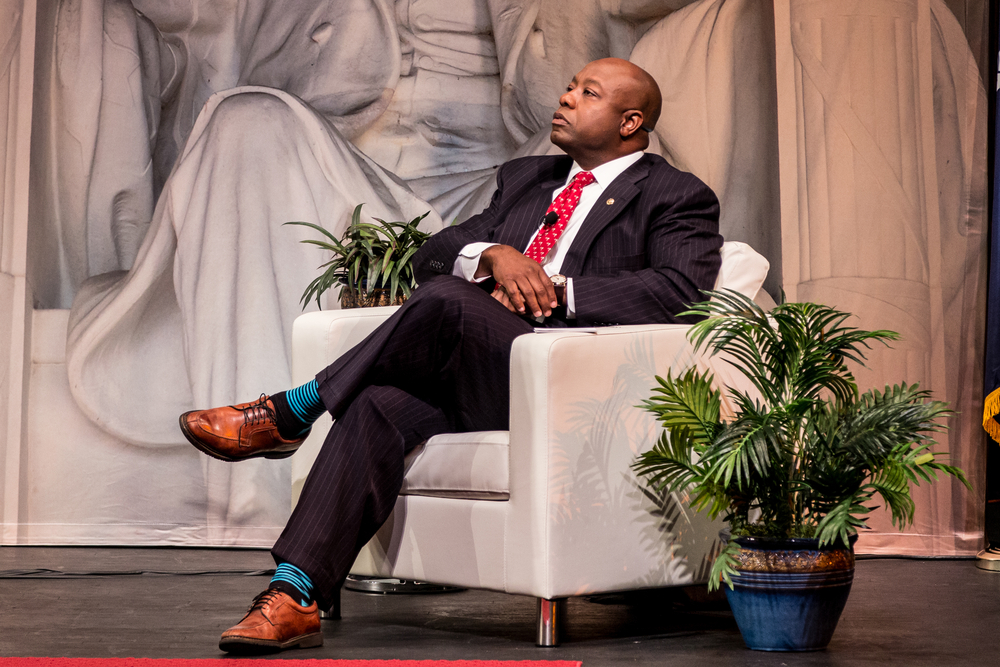Amidst an age of progression, it can still feel like we’ve regressed at certain points. While the Y2K era brought forth a new, accepting approach to ways and aspects of life that notoriously have been judged or repudiated in the past, current social norms can be detrimental to one’s sense of self and all around wellness. This is reflected in the latest round of adults entering society-Generation Z-and how we handle the ramifications of past and present decisions influencing our lives. The question is, do we have the potential to accelerate beyond the generations before us, or have we intentionally been set up for failure? Will we float or drown?
One of the greatest concerns older generations have about Gen Z is the current mental health crisis specifically affecting our young adults. In a 12 year study conducted by the 2024 World Happiness report, joy is declining amongst young people in specifically western first-world countries. According to the study, in America, your 20’s-which are historically considered to be the best era of people’s lives-are not your happiest moments anymore. Instead, many young adults are facing what seems like “the equivalent of a midlife crisis.” Conversely, this issue doesn’t seem apparent in less rich countries-it’s almost the opposite.
The World Happiness Report highlights that declining happiness trends amongst 15-24 year olds are apparent in North America, Australia, Western Europe, North Africa, the Middle East and South Asia. However, happiness rates are rising amongst this age group in parts of Sub-Saharan Africa, Central and Eastern Europe, the Commonwealth of Independent States, Latin America, the Caribbean and Southeast Asia. This stark contrast raises the idea that the mental health crisis in America could very well be-respectfully-a first world problem. If so, as grown adults now we have to be able to put ourselves in check, and do the work to heal our inner selves instead of hopelessly blaming those before us for our problems and feeling stuck. We owe it to ourselves as the future leaders of this nation.
The rise of social media is a central factor considered in the decline of mental health amongst America’s young adults. The Guardian article, “Young people becoming less happy than older generations, research shows” notes the sentiments of US surgeon general, Dr. Vivek Murthy, who believes the lack of social media regulation was a government failure and downright “insane.”
The happiness study shows that women start reporting a decline at an earlier age than men, starting at only 12 years old, and this definitely could be a direct effect of social media use and advertising in the media. Women are considered the top consumers in society. Female support for certain products brings in the money which in turn makes the gender targets for ads catered to the way they think. Consider the massive beauty industry in America-they can literally capitalize off female insecurity. The less secure a woman feels with her appearance, the more likely she will buy/invest in products to enhance her beauty. This has created a ridgid, hypersexualized beauty standard that can feel impossible to achieve because it isn’t real. Still our timelines will be flooded with images of women with unattainable bodies looking like total perfection (usually due to cosmetic surgery and/or photoshop). This coupled with ignorant or narcissistic comments from both sides, but especially the male gaze in culture through music lyrics, vlogs, etc which infer that women are only good for sex and good looks, can destroy a woman’s sense of self worth.
With unrealistic beauty standards and the hypersexualization of women, it should be no wonder why feelings of self depreciation invade a female’s subconscious mind at such an early age. With phones, kids have the world at their fingertips which in turn makes it extremely difficult to even hide this type of influence from them. In the UNICEF article, “Not An Object: On Sexualization and Exploitation of Women and Girls,” it notes that hypersexualization leads to “anxiety about appearance, feelings of shame, eating disorders, lower self-esteem and depression” in women and girls. Additionally it highlights that according to the Dove Self Esteem Project, “only 11 percent of girls worldwide would call themselves beautiful and six in ten girls avoid participating in life activities because of concerns about the way they look.”
Social media has opened an endless new realm of possibilities and interactions, but it also creates a foundation for misinformation and harmful ideals to spread. With extreme cancel-culture, cyberbullying and assimilation efforts, social media can box you in and make you feel like an outcast if you don’t quickly catch on to social trends-making life feel like a perpetual domain of high school. We treat certain people like monoliths and entertain this idea with what we post about others instead of recognizing that everybody is unique with their own story. Cancel-culture also can be a shady way to denigrate someone’s character as it can literally be based on hearsay and refuses the idea of redemption-which is something people deserve to be able to achieve. People who don’t even know the real you can claim ideas about who you are-no matter what your true intentions may be.
Social media also makes people hyper aware of the evils and tragedies of the world. One can easily go online and watch a real murder happen, war in live action, child exploitation, and the list can go on. This can desensitizes people to certain issues while traumatizing others, and the dialogue between the two in comments can be really intense.
If we’re not disciplined enough with our social media use, we can get caught up in the dopamine rush of mindless scrolling which just ultimately distracts us, wastes our time and makes us dumber. Maybe it’s this addicting rush of dopamine that led us to this massive desire for instant gratification amongst the Gen Z population.
The article, “What’s up with Generation Z?” notes the thoughts of psychotherapist Karen Hartley when dealing with her patients in their 20’s. She explains how today’s young adults have trouble balancing the multitude of stressors in their lives.
“People catastrophise a lot more now, compared with me when I first started,” she said. “I think young people underestimate their ability to deal with these things.”
Instead of taking baby steps to resolve an issue, we want a direct solution immediately and this can cause us to look for an answer in the wrong places.
“People have access to so many things, but it’s not always beneficial,” Hartley continues. “They do want quick fixes, instant remedies. They’ll say, ‘Can I just have hypnosis’? or ‘Can you just fix me the easiest way possible?’ But it can take three to six months, sometimes two years.”
This mentality in turn could be a direct contributing factor to the opioid crisis that is torturing and killing our young adults and adolescents since drugs are a common instant gratification.
While the decline in mental health in Gen Z does seem like a first world problem, it is important to note that America and the Western world in general have been much more accepting of mental health disorders in recent years and this may not translate across the globe. In fact we’re so aware of bad mental health here that it almost seems like a trend to some people to claim they’re depressed-which could even speak the feeling into existence. So, with all this in mind, do you think the decline of mental health in Gen Z is a first world problem? What steps should be taken to combat this? How detrimental is this for our future? Let us know in the comments!











